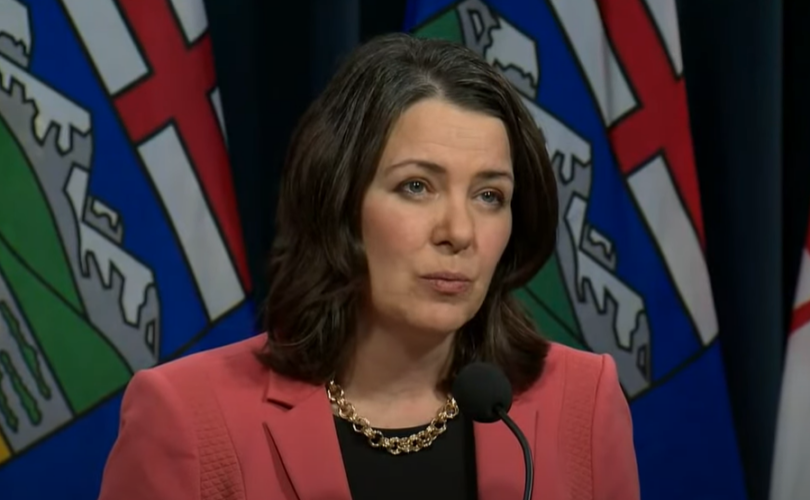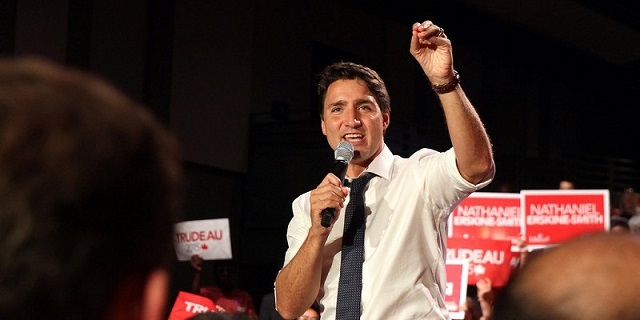Alberta
Alberta budget announces record high health spending including money for new and redeveloped hospitals

Alberta’s government is providing another year of record-high investment, with $24.5 billion in the Ministry of Health’s operating expense this year, an increase of 4.1 per cent from last year. This new funding will focus on addressing areas of priority in the Healthcare Action Plan to improve the health-care services Albertans expect and deserve. In addition, Alberta’s primary health-care system is being strengthened and modernized with a record investment of $243 million over three years.
Budget 2023 provides $3.1 billion in capital funding over three years to further build up Alberta’s valuable health-care infrastructure, an additional $529 million in capital maintenance and renewal for health facilities and a further $732 million in self-financed funding. The $3.1 billion includes funding for the redevelopment and expansion of the Red Deer Regional Hospital, increasing critical services and capacity in one of Alberta’s largest hospitals.
Additionally, $18 million over three years is for further planning for proposed health capital projects across the province, including the stand-alone Stollery Children’s Hospital in Edmonton, a north Calgary/Airdrie regional health centre, expansion of the Strathcona Community Hospital, and new or upgraded facilities in Bassano, Cardston and Whitecourt.
A total of $237 million over three years will go towards the Alberta Surgical Initiative Capital Program, with $120 million in new funding to expand and modernize operating rooms in 15 communities across the province and reduce wait times for surgeries.
The new Health Workforce Strategy will help get Albertans the care they need, when and where they need it. Budget 2023 includes $158 million in 2023-24 to retain and support, attract, grow, strengthen and evolve the health-care workforce, including physicians and nurses.
“Building a resilient and responsive health-care system that meets the needs of Albertans is essential to keeping our province healthy. This is why Budget 2023 includes another record-high health-care investment, so we can put the right health-care professionals, resources and services where they are needed most.”
Budget 2023 invests in emergency medical services (EMS) to improve ambulance response times. An increase of $196 million over three years will help hire more staff and implement recommendations from the Alberta EMS Provincial Advisory Committee. A new capital program will provide $15 million over three years to put more ambulances on the road.
As part of the initiative to improve primary health care, Alberta’s government is investing more than $2 billion in 2023-24. This includes $243 million over three years to strengthen the province’s primary care system, including implementing the recommendations from the three advisory panels of Modernizing Alberta’s Primary Health Care System (MAPS) established in fall 2022. These recommendations will inform the government’s immediate next steps and a path forward over the next five to 10 years.
“Investing in health care is not just a cost, it’s an investment in our future. By increasing critical health-care capacity, we can ensure that our health-care system is equipped to meet the needs of our citizens and provide the highest quality of care possible.”
“Over the next three years, Alberta’s government is investing $23 billion into public infrastructure through the 2023 Capital Plan. By building and revitalizing hospitals, schools, courthouses and other public facilities, we are investing in the critical infrastructure projects that Albertans need and help keep people working.”
Budget 2023 includes nearly $4.3 billion in combined operating support for community care, continuing care and home care programs, an increase of more than 15 per cent, or $570 million from the 2022-23 forecast. An investment of $1 billion over three years will support continuing care transformation that will shift care to the community, enhance workforce capacity, increase choice and innovation, and improve the quality of care within the sector. In addition, there is $310 million over three years for the Continuing Care Capital Program, which supports modernizing continuing care facilities, developing innovative small care homes, providing culturally appropriate care for Indigenous Peoples and building new spaces in priority communities having the greatest need.
Budget 2023 includes operating expense of $148 million in 2023-24 for the Ministry of Mental Health and Addiction. In addition, it supports Alberta Health Services with additional funding to reduce wait times for mental health and addiction services and address gaps in the system. Alberta spends more than $1 billion per year on mental health and addiction programs and services, excluding physician billings. Over the next three years, Alberta’s government will also invest $155 million in capital funding to continue building holistic, long-term recovery communities where Albertans will be able to access detox services, treatment medications, peer support, and help with skills and training.
“Alberta has emerged as a national leader in building out recovery-oriented systems of care for addiction and mental health. The historic investments included in Budget 2023 will help us further expand treatment and recovery services, enabling us to support more Albertans in their pursuit of recovery.”
Budget 2023 highlights
- $6.2 billion budgeted in 2023-24, increasing to more than $6.4 billion by 2025-26 for physician compensation and development programs.
- More than $250 million over four years (beginning in 2022-23) for recruitment and retention programs under the agreement with the Alberta Medical Association so more Albertans can access family doctors, and to provide more support to help physicians keep their clinics open and running.
- More than $2 billion per year for Drugs and Supplemental Health benefit programs. The Seniors Drug program budget is the largest component of this suite of programs, with $693 million budgeted in 2023-24, supporting more than 700,000 seniors.
- More than $2 billion in 2023-24 to support primary care in Alberta, including payments to family doctors.
- $125 million over three years as an initial investment, providing funding for early opportunities to improve primary care identified through the Modernizing Alberta’s Primary Health Care Systems (MAPS) initiative.
Budget 2023 secures Alberta’s bright future by transforming the health-care system to meet people’s needs, supporting Albertans with the high cost of living, keeping our communities safe and driving the economy with more jobs, quality education and continued diversification.
Alberta
Alberta government should eliminate corporate welfare to generate benefits for Albertans

From the Fraser Institute
By Spencer Gudewill and Tegan Hill
Last November, Premier Danielle Smith announced that her government will give up to $1.8 billion in subsidies to Dow Chemicals, which plans to expand a petrochemical project northeast of Edmonton. In other words, $1.8 billion in corporate welfare.
And this is just one example of corporate welfare paid for by Albertans.
According to a recent study published by the Fraser Institute, from 2007 to 2021, the latest year of available data, the Alberta government spent $31.0 billion (inflation-adjusted) on subsidies (a.k.a. corporate welfare) to select firms and businesses, purportedly to help Albertans. And this number excludes other forms of government handouts such as loan guarantees, direct investment and regulatory or tax privileges for particular firms and industries. So the total cost of corporate welfare in Alberta is likely much higher.
Why should Albertans care?
First off, there’s little evidence that corporate welfare generates widespread economic growth or jobs. In fact, evidence suggests the contrary—that subsidies result in a net loss to the economy by shifting resources to less productive sectors or locations (what economists call the “substitution effect”) and/or by keeping businesses alive that are otherwise economically unviable (i.e. “zombie companies”). This misallocation of resources leads to a less efficient, less productive and less prosperous Alberta.
And there are other costs to corporate welfare.
For example, between 2007 and 2019 (the latest year of pre-COVID data), every year on average the Alberta government spent 35 cents (out of every dollar of business income tax revenue it collected) on corporate welfare. Given that workers bear the burden of more than half of any business income tax indirectly through lower wages, if the government reduced business income taxes rather than spend money on corporate welfare, workers could benefit.
Moreover, Premier Smith failed in last month’s provincial budget to provide promised personal income tax relief and create a lower tax bracket for incomes below $60,000 to provide $760 in annual savings for Albertans (on average). But in 2019, after adjusting for inflation, the Alberta government spent $2.4 billion on corporate welfare—equivalent to $1,034 per tax filer. Clearly, instead of subsidizing select businesses, the Smith government could have kept its promise to lower personal income taxes.
Finally, there’s the Heritage Fund, which the Alberta government created almost 50 years ago to save a share of the province’s resource wealth for the future.
In her 2024 budget, Premier Smith earmarked $2.0 billion for the Heritage Fund this fiscal year—almost the exact amount spent on corporate welfare each year (on average) between 2007 and 2019. Put another way, the Alberta government could save twice as much in the Heritage Fund in 2024/25 if it ended corporate welfare, which would help Premier Smith keep her promise to build up the Heritage Fund to between $250 billion and $400 billion by 2050.
By eliminating corporate welfare, the Smith government can create fiscal room to reduce personal and business income taxes, or save more in the Heritage Fund. Any of these options will benefit Albertans far more than wasteful billion-dollar subsidies to favoured firms.
Authors:
Alberta
Official statement from Premier Danielle Smith and Energy Minister Brian Jean on the start-up of the Trans Mountain Pipeline

-

 Alberta2 days ago
Alberta2 days agoOfficial statement from Premier Danielle Smith and Energy Minister Brian Jean on the start-up of the Trans Mountain Pipeline
-

 Economy2 days ago
Economy2 days agoToday’s federal government—massive spending growth and epic betting
-

 Economy2 days ago
Economy2 days agoYoung Canadians are putting off having a family due to rising cost of living, survey finds
-

 COVID-191 day ago
COVID-191 day agoCanada’s COVID vaccine injury program has paid out just 6% of claims so far
-

 Environment1 day ago
Environment1 day agoClimate Alarmists Want To Fight The Sun. What Could Possibly Go Wrong?
-

 Opinion8 hours ago
Opinion8 hours agoClimate Murder? Media Picks Up Novel Legal Theory Suggesting Big Oil Is Homicidal
-

 International2 days ago
International2 days agoNYPD storms protest-occupied Columbia building, several arrested
-

 Addictions17 hours ago
Addictions17 hours agoCity of Toronto asks Trudeau gov’t to decriminalize hard drugs despite policy’s failure in BC









